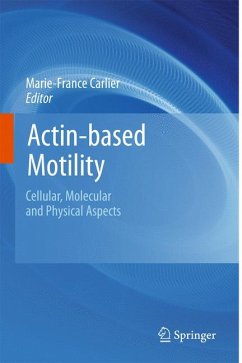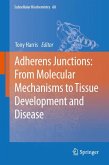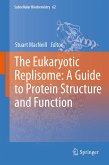This book presents the cellular, molecular and physical aspects of force and movement by the self-assembly of actin, one of the most abundant proteins found in cells, into cytoskeletal filaments. « Actin-based motile processes » are responsible for a large variety of motile activities such as chemotactic locomotion, embryonic and metastatic cell migration, wound healing, eukaryotic cytokinesis and bacterial plasmid segregation, endocytic and phagocytic activities, as well as morphogenetic processes including, axis patterning in early embryos, axonal growth in brain development, and the immune response and synaptic plasticity processes at the origin of learning and memory. The book describes how the recently undertaken multidisciplinary and multiscale approaches have explored the molecular and physical mechanisms at the origin of force and movement produced by actin self-assembly. The chosen topics show how advances have been made in the field of cell motility due to the progress in live cell imaging, light microscopy, improved resolution in the structure of large protein assemblies, the biochemical analysis and mathematical modeling of actin assembly dynamics and the development of nanotechnologies enabling us to measure forces in the range of pico- to nano-newtons produced by actin assemblies.
Dieser Download kann aus rechtlichen Gründen nur mit Rechnungsadresse in A, B, BG, CY, CZ, D, DK, EW, E, FIN, F, GR, HR, H, IRL, I, LT, L, LR, M, NL, PL, P, R, S, SLO, SK ausgeliefert werden.









